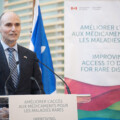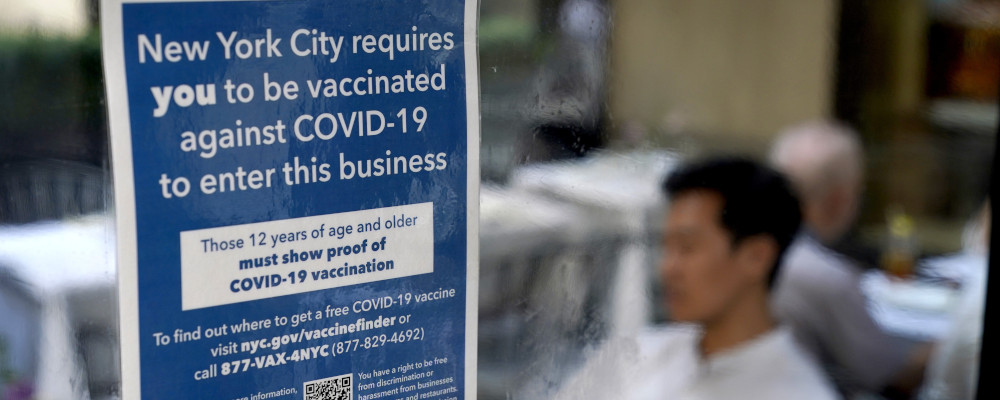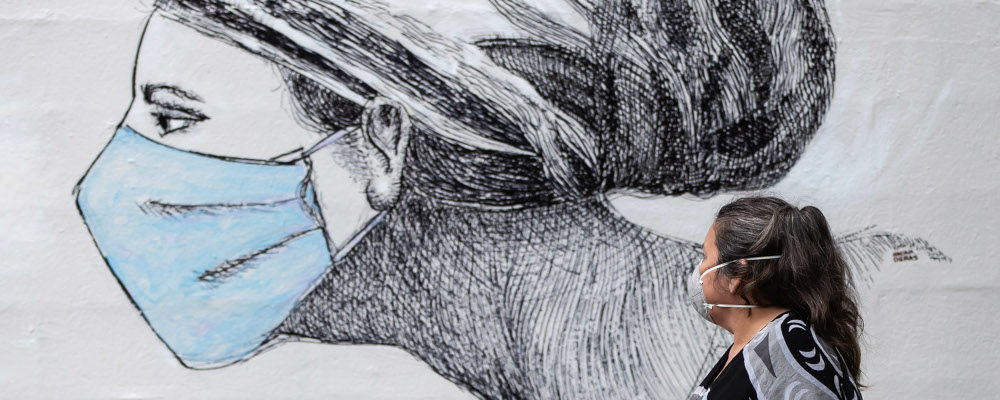Be it resolved, to promote public health, governments should mandate use of COVID-19 vaccines broadly in society.
The following is adapted from remarks made by Paul Offit and Martin Kulldorff in a Munk Debates podcast. Listen to the whole episode at: https://munkdebates.com/podcast/vaccine-mandates
I want to start by saying that vaccines are one of the greatest inventions of mankind. I would group it together with the wheel and electricity as to one of the top 10 most important inventions ever, which has saved millions and millions of lives.
If you are old and you haven’t had COVID, then I would urge you immediately to go and get vaccinated. COVID is a serious disease for everyone. It has a much higher risk than annual influenza, for example. So I think that’s an important message to send to anybody who is old and hasn’t had this disease.
A huge problem with mandates, however, is that we have many people who have had COVID. They have immunity. We have known for over a year that if you’ve had COVID you have strong lasting immunity to this disease. And we now know more recently that the immunity from having had COVID is stronger and more durable than the immunity you get from vaccines.
It’s also an issue of global public health, because we are now forcefully vaccinating a lot of people who don’t need the vaccines, while there are many people in the developing world, in South America, in Africa, in the Middle East, in South Asia and so on, who are desperate to get the vaccine because they haven’t gotten it. They are old people, and they are higher risk.
Mandating vaccinations in the rich countries to people who don’t need it results in a situation where there is less supply in the developing world. When you mandate vaccines to people who don’t need it in one place, then unfortunately, that means that there’s less supply for poor people in Brazil, in India, in Pakistan, in Iran, in Nigeria, and so on. So it’s a very unethical, immoral, and selfish thing for us in the United States to give it to people who don’t need it when there are a lot of people around the world who do need it and who are not getting it.
Mandating people who have had COVID to get vaccinated makes zero sense from a scientific point of view, and it makes zero sense from a public health point of view, but it’s worse than that. It actually creates problems because when people see that they are forced to take a vaccine when they don’t need to, it creates a lot of distrust in public health.
And we have seen during this last year and a half that all the hard work we’ve done over many decades to build trust in the vaccines are now disappearing because we are introducing mandates that makes no sense from a scientific or public health perspective.
Recommended for You

Kristina Acri: The Trudeau government’s universal pharmacare is a flawed plan that will have serious unintended consequences

Durhane Wong-Rieger: Rare disease patients suffer while Canadian governments dither

Tingting Zhang: Canada has tons of doctors—yet an alarming number of people have no primary-care provider. What’s going on?

Sean Speer: A single-payer pharmacare model would be costly—and even worse, ineffective and unnecessary









